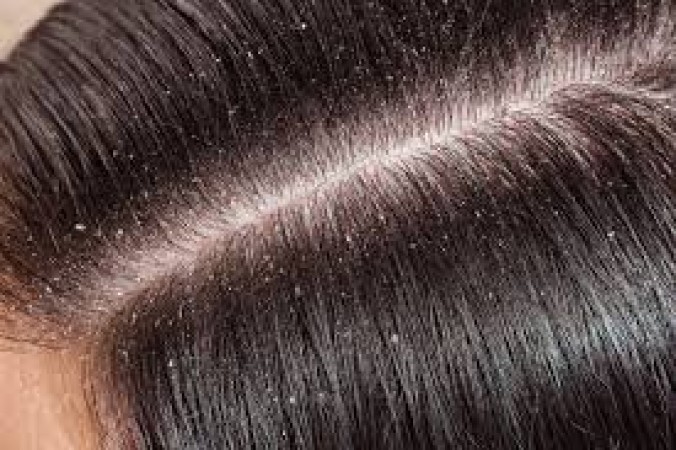
Dandruff is a common scalp condition that affects millions of people worldwide. It is characterized by the shedding of dead skin cells from the scalp, often accompanied by itching and irritation. While dandruff is not a serious medical condition, it can be embarrassing and uncomfortable for those who experience it.
Causes of Dandruff
Dandruff can have various causes, and understanding these factors is crucial in managing the condition effectively.
Dandruff is a Result of Several Factors:
1. Malassezia: One of the primary causes of dandruff is the presence of a yeast-like fungus called Malassezia on the scalp. This fungus feeds on the natural oils produced by the hair follicles, and in some individuals, it can lead to an overgrowth that triggers the excessive shedding of skin cells.
2. Seborrheic Dermatitis: Another common cause of dandruff is seborrheic dermatitis, a chronic inflammatory skin condition that affects the scalp and other oily areas of the body. Seborrheic dermatitis can cause redness, greasy or oily patches, and flaking of the skin.
3. Dry Skin: Dry skin is a prevalent cause of dandruff, especially during the winter months when the air is cold and dry. When the scalp becomes dry, it can lead to itching and flaking of the skin.
4. Sensitivity to Hair Products: Some individuals may be sensitive to certain hair care products, such as shampoos, conditioners, or styling products. These products can irritate the scalp and trigger dandruff in susceptible individuals.
5. Diet and Stress: While less common, diet and stress can also play a role in the development of dandruff. Poor nutrition and high levels of stress can weaken the immune system, making the scalp more susceptible to fungal infections and other skin conditions.
Why Dandruff Persists in Some People
Dandruff in Summer:
1. Humidity Levels: Despite the warm weather, high humidity levels can actually exacerbate dandruff for some individuals. This is because the excess moisture in the air creates an ideal environment for the Malassezia fungus to thrive. When the fungus proliferates, it can lead to increased shedding of skin cells and exacerbate dandruff symptoms.
2. Sun Exposure: While sunlight can have a beneficial effect on dandruff for some people, excessive sun exposure can actually worsen the condition for others. Prolonged exposure to UV radiation can dry out the scalp and strip it of its natural oils, leading to increased flaking and irritation.
3. Sweating: Increased sweating is common during the summer months, especially in hot and humid climates. Sweat can mix with the natural oils on the scalp and create a breeding ground for bacteria and fungi, including Malassezia. This can lead to inflammation and exacerbate dandruff symptoms.
4. Allergies: Some individuals may develop allergies to seasonal allergens, such as pollen, during the summer months. Allergic reactions can trigger inflammation and irritation of the scalp, leading to dandruff flare-ups in susceptible individuals.
5. Inadequate Hair Care: Changes in hair care routines during the summer months can also contribute to dandruff persistence. For example, frequent swimming in chlorinated pools or using different hair care products can disrupt the natural balance of the scalp and trigger dandruff symptoms.
Managing Dandruff in Summer
Tips for Managing Dandruff During the Summer Months:
1. Use a Gentle Shampoo: Choose a mild, anti-dandruff shampoo that is gentle on the scalp and effective at controlling flakes. Look for ingredients like zinc pyrithione, selenium sulfide, or ketoconazole, which can help reduce fungal growth and inflammation.
2. Wash Hair Regularly: Regular washing helps remove excess oil, sweat, and dead skin cells from the scalp, reducing the risk of dandruff. Aim to wash your hair at least every other day, using lukewarm water and a gentle shampoo.
3. Stay Hydrated: Drinking plenty of water helps maintain scalp hydration and prevents dryness, which can exacerbate dandruff symptoms. Aim to drink at least eight glasses of water per day, and limit your intake of caffeinated and alcoholic beverages, which can dehydrate the body.
4. Protect Your Scalp: Wear a hat or use sunscreen on your scalp when spending time outdoors to protect it from the sun's harmful rays. Look for sunscreen products specifically designed for the scalp, or wear a wide-brimmed hat to provide ample coverage.
5. Manage Stress: Stress can exacerbate dandruff symptoms, so it's essential to practice stress-reducing techniques such as meditation, yoga, or deep breathing exercises. Taking time to relax and unwind can help keep dandruff flare-ups at bay. While dandruff can be persistent for some individuals, especially during the summer months, it can be managed effectively with proper care and attention to scalp health. By understanding the underlying causes of dandruff and taking proactive steps to address them, it is possible to keep dandruff under control and enjoy healthier, flake-free hair throughout the year.
Financially, today is going to be your day
People of these zodiac signs may have to work harder, know what your horoscope says
People of this zodiac sign will be worried today due to children or education, know your horoscope